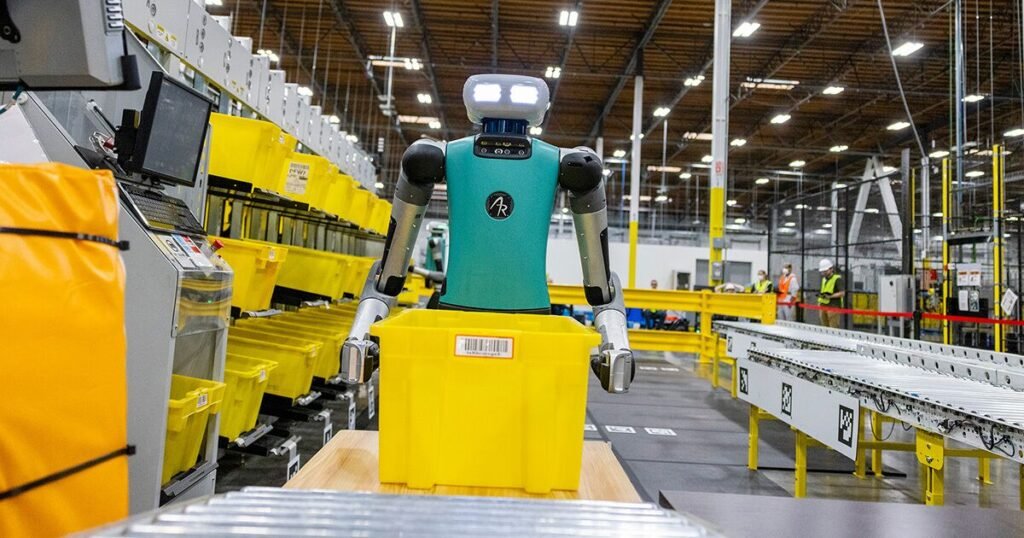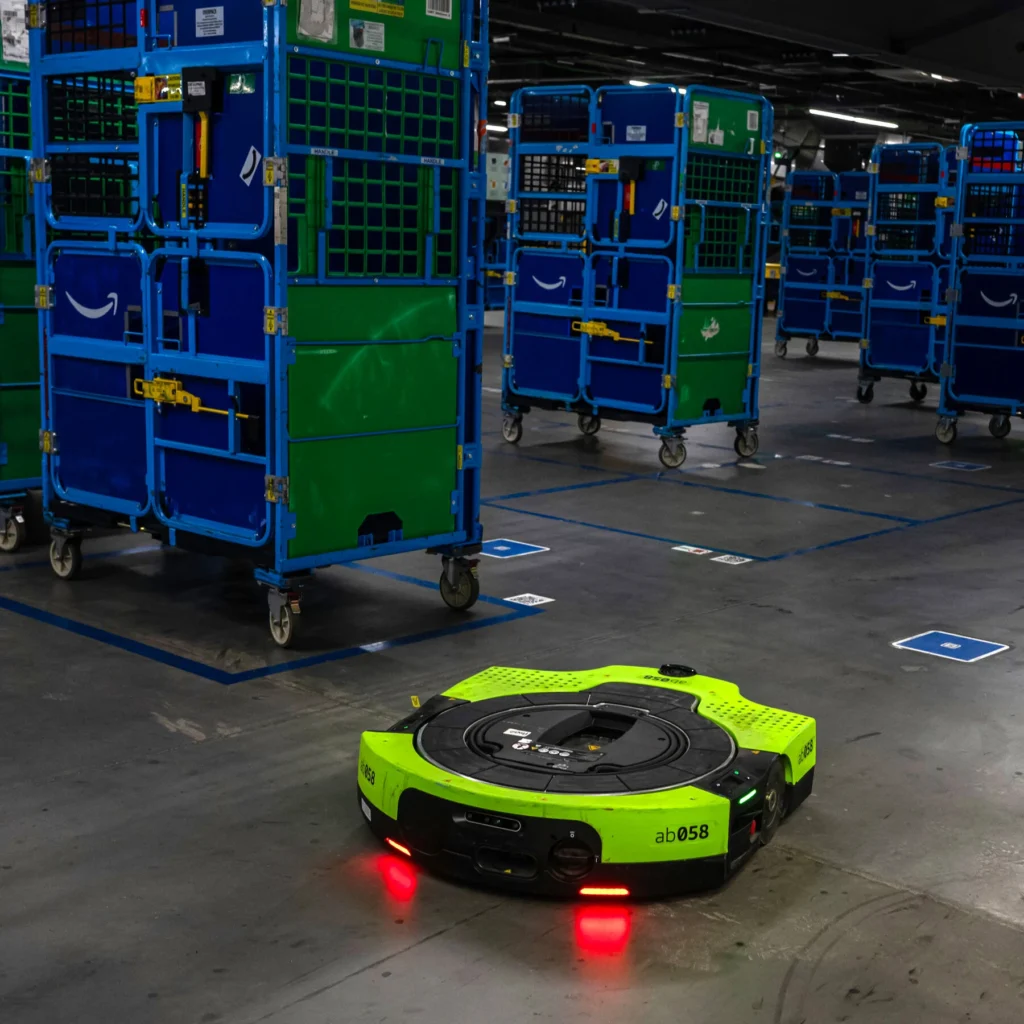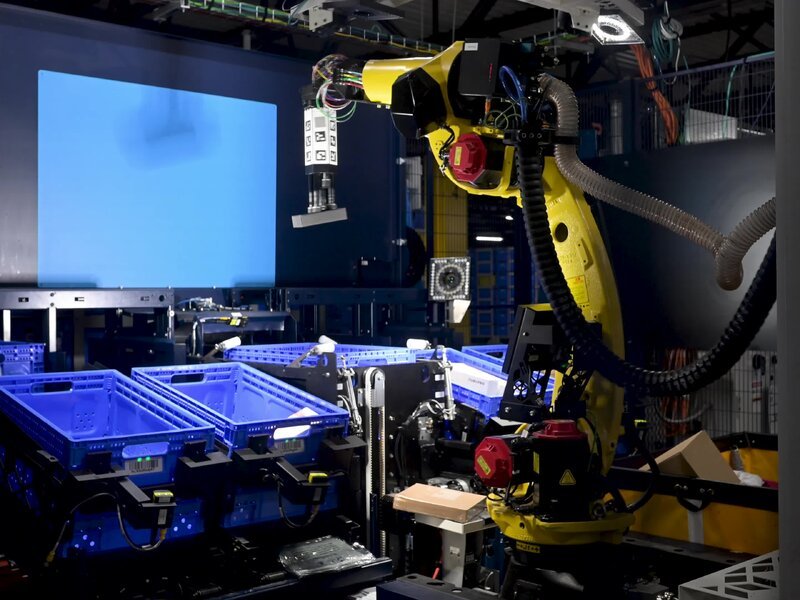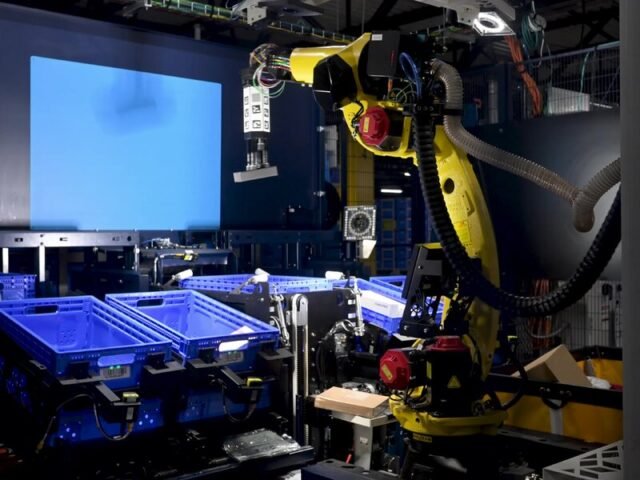Global e-commerce giant Amazon appears poised to undertake one of its most dramatic operational shifts yet – preparing to replace up to 500,000 human jobs with robotics and automation by 2033. According to internal documents and multiple reports, one of Amazon’s robotics teams is working towards automating as much as 75 % of its operations in the United States.
While Amazon insists it is still hiring (including 250,000 roles this upcoming season), the broader message is unmistakable: the company is looking to scale growth without a commensurate rise in human labour.
From a Nigerian perspective, this is far more than a U.S. story. It signals how global groundwork in automation will ripple outward—with implications for young job-seekers, manufacturing, and logistics roles across Africa.

Table of Contents
What’s Fueling the Automation Drive?
Two main drivers are evident: cost-efficiency and speed. Internal estimates suggest automation could save Amazon about 30 cents per item processed, a significant saving when multiplied by billions of items.
In the U.S., Amazon’s fulfilment centre in Shreveport, Louisiana, offers a real-life example of this shift: thanks to around 1,000 robots, staffing needs in that site fell by an estimated 25%. Amazon plans to replicate that model across roughly 40 additional sites by 2027.
The company expects its product volume to double by 2033, yet maintain a stable U.S. headcount, effectively meaning half a million fewer human jobs compared to what would have otherwise been required.
Notably, Amazon is reportedly avoiding terms like “automation” and “AI” in favour of gentler language like “advanced technology” or “co-bots” (collaborative robots) to soften public perception.

Impact on Workers—and Why It Matters Beyond the U.S.
For the many hourly workers in warehouses, fulfilment centres and related logistics roles, Amazon’s strategy is a wake-up call. Although mass layoffs are not currently being announced, the company may simply not replace many roles when employees leave—aka attrition.
Economists warn that if Amazon pulls this off, one of the biggest private employers will pivot from being a net job creator to a net job destroyer in the U.S. labour market.
For Nigeria, and other emerging markets, the implications are clear:
- Entry-level jobs in warehousing and logistics may no longer proliferate as they once might have.
- Skills-based roles—robot maintenance, machine learning supervision, system oversight—are rising in value, but many younger workers may not yet have access to those pathways.
- The global benchmark for productivity is rising, which may raise the bar for human labour everywhere, including in Africa.
In other words, the training needs to match the automation wave, not lag behind it.
What Now? What to Watch.
Here’s what you should keep an eye on:
- Hiring vs automation: Amazon is still recruiting large numbers of workers for seasonal peaks, but whether those roles are sustainable or just stop-gaps is important to watch.
- Speed of rollout: The 75 % automation target by 2033 is ambitious. How quickly Amazon deploys robotics and whether it expands globally (including into regions like Africa) will matter.
- Reskilling efforts: If human workers are displaced, will Amazon or other global players provide meaningful training or transition paths into tech-oriented roles? Without that, displacement risks grow.
- Global spread & supply-chain changes: While much of the focus is U.S.-centric, logistics and fulfilment are global. The standards set by Amazon may ripple into Africa, potentially altering what jobs and skills get valued.
- Policy and social response: When half a million jobs are on the line, regulators, labour groups, and governments will likely ramp up scrutiny. For Nigeria, policies around automation, up-skilling, and employment transitions become relevant.

Conclusion
The possibility of Amazon replacing half a million jobs with robots isn’t just a headline—it’s a sign of labour markets shifting beneath our feet. For Nigeria, this moment carries two options: act proactively to build skills, infrastructure and policy frameworks that embrace the change, or risk being swept up into disruption without preparation.
Work may not disappear entirely—but it will change. The jobs of tomorrow may look very different from the jobs of yesterday. Ensuring that Nigerian workers get a fair shot at those emerging opportunities will make all the difference.
Join Our Social Media Channels:
WhatsApp: NaijaEyes
Facebook: NaijaEyes
Twitter: NaijaEyes
Instagram: NaijaEyes
TikTok: NaijaEyes





